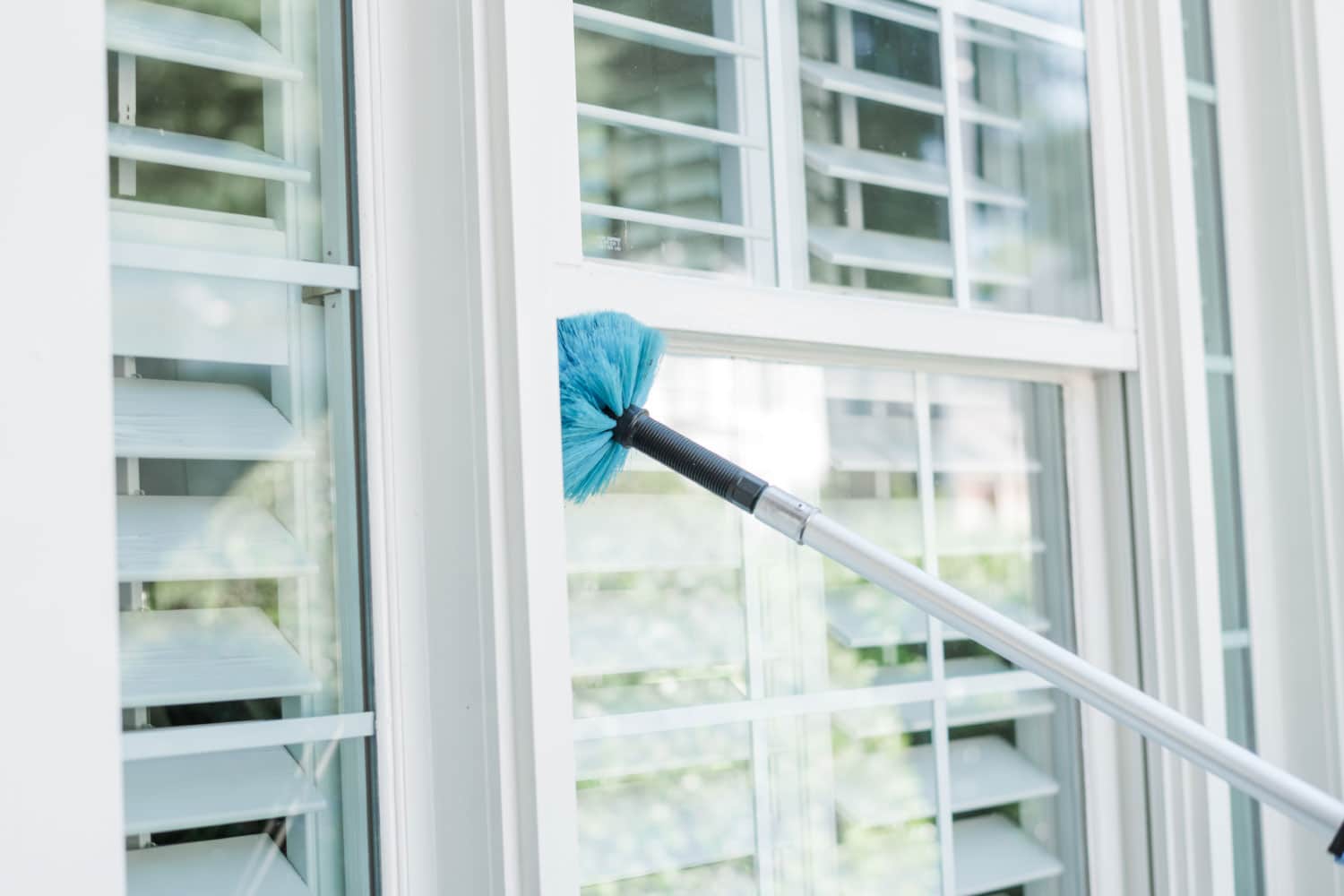Nothing gives someone the creeps quite like spiders. Our culture is programmed to fear them. Whether learned from movies (remember Arachnophobia?) or from a family member with a phobia, the aversion to spiders is deep for many people, even though a majority of them rarely harm humans. Even Brown Recluses and Black Widows prefer to avoid us, and they only react when they feel threatened. That said, no one wants any creepy crawlies–especially arachnids–in their homes.
Why Do I Have Spiders in My Home?
All pests need a place to live and food to eat. Just like their insect counterparts, spiders often enter our homes because they require harborage and sustenance. Climate-controlled homes with food are like an actual oasis to the insects and arachnids in our yards. Once insects are present, spiders will often spin webs in strategic areas to capture an unsuspecting passerby. Unfortunately, webs are often in places where they catch attention, whether a glimpse from the corner of an eye or directly to the face of an unlucky person. While a simple broom or vacuum can get rid of the existing webs, there are strategies that can be taken to prevent new webs from forming.
How Do I Keep Spiders Out of My Home?
Eliminating conditions that appeal to spiders will reduce their populations in and around your home. When discussing control methods for pests, a triangle is often used to describe the factors required for a population to be successful. The three sides of that triangle are:
- the pest itself
- food
- a favorable environment.
Removing any side of that triangle often results in effective control. Eliminating the spiders seems like the obvious solution once the spiders are present, but controlling the amount of food available or removing a favorable environment may stop them from becoming an issue before they arrive. Here are some tips:
- Seal the cracks and crevices around your doors and windows. Insects and spiders are small and only require a tiny opening to gain access. By limiting entry points, we stop both spiders and their food from entering our homes.
- Practice good sanitation principles. Regularly cleaning your home not only rids the webs of existing spiders, but can also displace eggs and nymphs. Removing trash, sealing food, and cleaning crumbs will attract less insects, and less insects means less spiders.
- Turn off your external lights when you’re not outside at night. External lights attract flying insects like a beacon in the night. Since they attract insects, they also attract spiders. Building webs near exterior lights almost guarantees a meal for spiders.
- Make sure the humidity, especially in your crawl spaces, basements, and attics are properly controlled. Insects and spiders are small. This means they desiccate quickly in hot, dry weather. Areas with excess moisture and humidity slow this process, enabling them to stay hydrated and alive.
- Give your local pest control professionals at Nature’s Turf a call (770-461-4156) and consult with the experts about additional control methods and treatments. Even with your best efforts, some conditions are tough to eliminate completely. In situations where extenuating circumstances make it difficult to find solutions, a pest professional can help strategize the control of spider populations and the food they desire.








